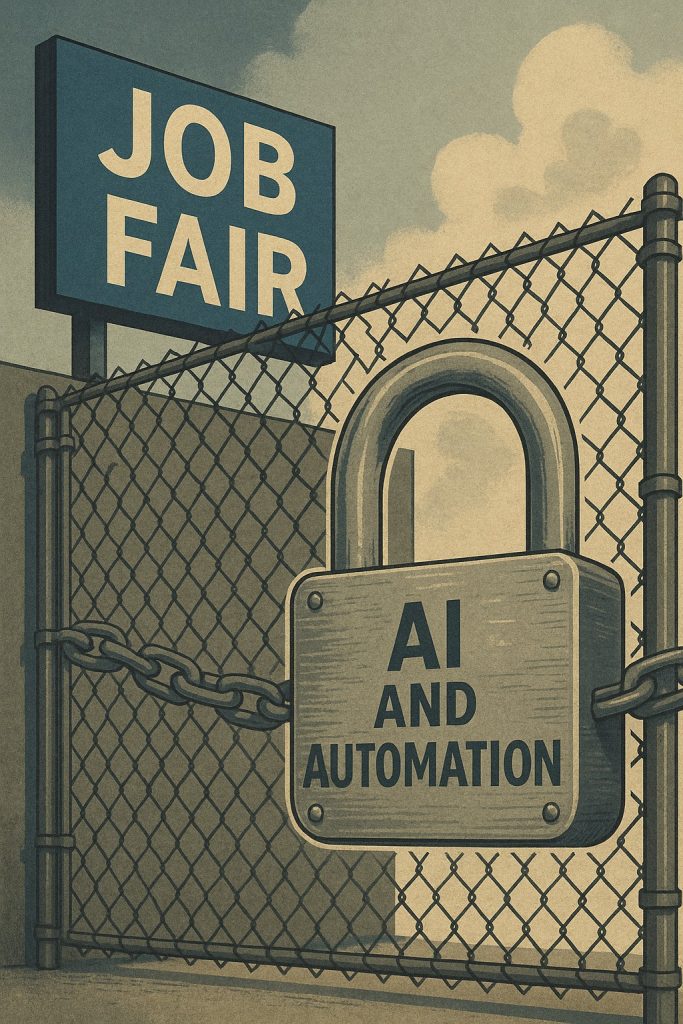Breaking into the tech industry has never been easy. But for today’s entry-level job seekers, especially Gen Z graduates, the path has become even steeper. As major tech companies tighten their belts and embrace automation, many young professionals are finding themselves locked out of the roles they once aimed for.
According to Business Insider, hiring for entry-level roles at some Big Tech firms has dropped by more than 50%. This sharp decline is sending shockwaves through college campuses and coding bootcamps. Yet, Gen Z isn’t backing down. They’re adapting, pivoting, and getting creative with how they enter the field.
Why the Tech Job Market Is So Tough Right Now
To start, the wave of tech layoffs in 2023 and early 2024 created intense competition. Thousands of experienced professionals flooded the market, often willing to accept junior-level roles. At the same time, companies like Amazon and Microsoft have ramped up their AI integration efforts. As Amazon CEO Andy Jassy recently noted, artificial intelligence is helping reduce the need for large corporate staffs (Wall Street Journal).
Naturally, this shift means fewer entry-level jobs and higher bars for candidates. But Gen Z isn’t waiting around.
How Gen Z Is Adapting to the New Tech Landscape
Despite setbacks, today’s graduates are showing remarkable resilience. Here’s how many are adjusting:
1. Learning AI-Centric Skills
Rather than resisting change, Gen Z is leaning into AI. From prompt engineering to model fine-tuning, they’re investing in AI literacy. Platforms like Coursera and Udacity are seeing surges in enrollment for machine learning courses.
2. Building Personal Projects
With internships scarcer, personal portfolios are becoming essential. Many grads now showcase GitHub repos, open-source contributions, and self-built apps to stand out.
3. Networking Differently
Gen Z is turning to unconventional platforms like Discord, Reddit, and X (formerly Twitter) to find mentors and job leads. These digital spaces offer faster, more authentic connections than traditional LinkedIn outreach.
4. Embracing Non-Traditional Roles
More grads are exploring tech-adjacent roles. Product ops, no-code development, and customer success are increasingly seen as viable pathways into the industry.

Tips for Entry-Level Job Seekers in 2025
Even with a competitive market, there are ways to gain traction. Try these proven strategies:
- Tailor every resume and cover letter. Generic applications get ignored. Customize your message to show value fast.
- Show your process. Employers want to see how you think. Document your projects and decisions in your portfolio.
- Get feedback. Join tech Slack groups or Reddit communities for honest resume and portfolio reviews.
- Stay persistent. Rejection is part of the game. Each one brings you closer to your “yes.”
What Companies Should Learn from Gen Z
Although companies are cautious, ignoring early talent comes at a cost. Gen Z brings fresh ideas, high adaptability, and digital fluency. They grew up with AI, not before it. Many already use tools like ChatGPT and Notion AI daily. Companies that invest in these young professionals now will benefit in the long run.
As noted in MarketWatch, sectors like semiconductors and hardware are seeing strong returns. This means hiring will return—perhaps soon. Smart companies will be ready with training programs and onboarding processes tailored to Gen Z’s strengths.
Final Thoughts
The current tech job market is undeniably tough for newcomers. Yet Gen Z isn’t giving up. They’re evolving, upskilling, and rewriting the rules of how to enter the field.
Their story is one of adaptation, not defeat. And in the end, it’s exactly this resilience that will shape the next generation of tech innovation.


